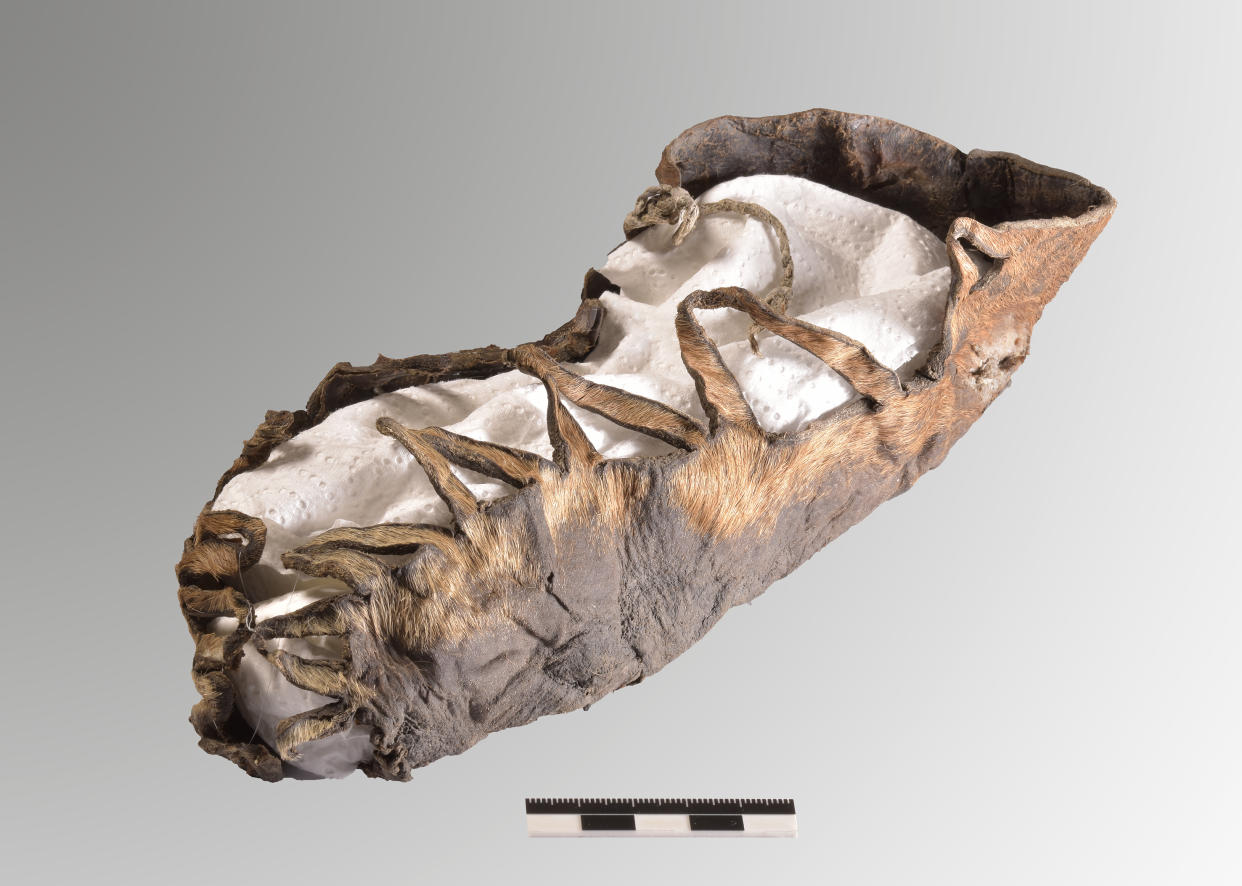2,200-year-old baby shoes discovered in Austria

German researchers have made a remarkable find - a perfectly preserved pair of children's shoes that are more than 2,000 years old.
Experts from the German Mining Museum in Bochum, Leibniz Research Museum for Georesources, have been conducting mining archaeological investigations at the Dürrnberg near Hallein since 2001.
Dürrnberg, near Salzburg in Austria, is renowned for its historical salt mining, dating back to the Iron Age. Recent excavations, led by Professor Dr. Thomas Stöllner, Head of the Mining Archaeology Research Department.
The preserving properties of salt have allowed organic materials to endure exceptionally well at this site, a rarity in archaeological discoveries - and have perfectly preserved the footwear. The shoes, roughly equivalent to a modern-day size 30, were unearthed during their campaign in the Georgenberg Tunnel.
"Our research at Dürrnberg has been providing valuable insights into the earliest mining activities for decades," remarked Professor Dr. Thomas Stöllner. "The condition of the discovered shoe is outstanding. Organic materials typically degrade over time, making finds like this child's shoe, as well as textiles and even excrement found at Dürrnberg, extremely rare glimpses into the lives of Iron Age miners. They offer valuable information for our scientific work."
While several leather shoes have been found at Dürrnberg, a child's shoe is particularly special, as it confirms the presence of children underground. Additionally, in this case, a rare remnant of a flax or linen lace was preserved, providing insights into the shoe's fastening method. The craftsmanship of the shoe also suggests it was likely made in the 2nd century BCE.


